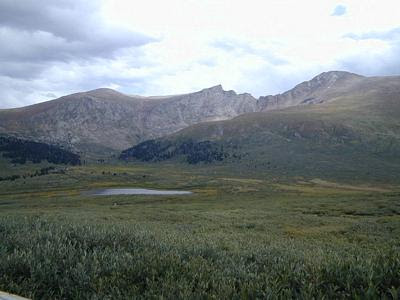
Golf lessons
Ecclesiastes 3: God made everything beautiful in itself and in its time — but he’s left us in the dark.
One of the famous parts of Ecclesiastes is his “a time to plant and another to reap” section in which he lists all the opposites of life and decides they all have their proper place. The writer is impressed by all God has done in the world, but frustrated that he can’t understand the meaning of it all. I played golf with a fellow who had a long pre-shot routine that he went through every time he hit the ball. He shuffled his feet a specific way, waggled the club for what seemed to be an eternity, and then stood frozen over the ball before finally hitting his horrible slice. I wanted to shout out, “Just hit the ball!” No doubt, he needed some golfing lessons, but even I could see that he was over-thinking his golf swing. He had himself tied up in knots and it created, not an athletic, fluid golf shot, but a poor shot and a frustrated golfer. Solomon is frustrated that, after all his thinking and considering, he can’t understand all God does. He decides that “there’s nothing better to do than go ahead and have a good time and get the most we can out of life.” That isn’t a ticket to living an immoral, God-ignoring life, but it’s a reminder that life is a gift of God and if we over-think it we, like my golfer friend, will spend way too much time out in the weeds rather than enjoying the beauty that has been freely given to us.
Take Away: Life is a gift meant to be enjoyed.
Tag: life
Devotional on Ecclesiastes
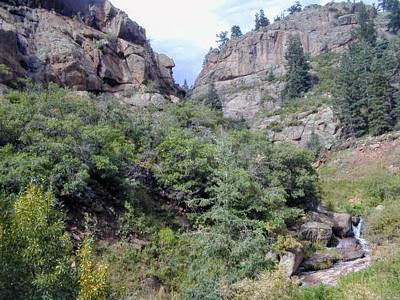
Life after death
Ecclesiastes 3: Who knows if there’s anything else to life?
One of the concerns of Solomon as he seeks meaning is what happens when life is finished. As far as he can tell animals and humans are pretty much alike; made of flesh, breathing the same air, and, upon death returning to the dust. It may be, he theorizes, that the human spirit survives death, but he really doesn’t have any proof of that. His conclusion is that since there’s uncertainty on this topic that a person ought to live life to the fullest right now because there may be no tomorrow. One thing we need to remember as we read Ecclesiastes is that we’re following Solomon on his quest for truth. He’s telling us his “in process” conclusions. To pick out a line here and there and state it as though this is Solomon’s final verdict is unfair to him. In the first part of the book he explains what he’s doing and we ought to remember that as we read his words. Another thing to remember is that he speaks from a purely Old Testament perspective. It isn’t until the first Easter and the understanding of life after death that develops from it that we have, as Paul Harvey would say, “the rest of the story.” In these words of Solomon we have the opinion of the secular humanist. When Jesus tells us that those who believe in him will never die we have the authority of the Son of God. The answer to Solomon’s “who knows” is this: “Jesus knows.” For someone who doesn’t have faith in Jesus to arrive at the same conclusion as Solomon is perfectly reasonable. As a believer in Jesus, though, I have the answer: “My Lord knows and he has told me that there is life after life.”
Take Away: The only real authority on the subject has told us that there is life after death, and that how we live now has a direct bearing on what that after-life will be like.
Devotional on Ecclesiastes

The purpose of life
Ecclesiastes 7: God made men and women true and upright; we’re the ones who’ve made a mess of things.
As part of his search for purpose Solomon seeks out people of wisdom. The result of his search is disappointing. He reports that not one person in a thousand measures up to that standard. Solomon is looking for people of depth, who have thought out the meaning of life and come to some conclusions. Instead, he finds that most people stay in the shallow end of the pool, never considering much beyond their next meal. The saddest thing, as far as he is concerned, is that it doesn’t have to be that way. The Creator created humans with the potential for greatness. This isn’t about the possibility of solving the mysteries of science. Instead, it’s about finding meaning to life itself. It’s of great value to consider “why I am here and where I am going.” The answer is the one we seem most intent on ignoring: “God.” It’s my connection to the divine that gives meaning to my life. He not only made me, but he made me for a purpose. When I live without recognizing that, I, in the words of Ecclesiastes, make “a mess of things.”
Take Away: It’s my connection to the divine that gives meaning to my life.
Devotional on Ecclesiastes

Delight in the light
Ecclesiastes 11: Even if you live a long time, don’t take a single day for granted.
A light reading of Ecclesiastes (if such a thing is really possible) leaves me with the feeling that the writer is a hardened pessimist who’s concluded that everything is “vanity.” While there are plenty of statements about how worthless things are, there’s also a positive, yet realistic theme here. He advises me to cherish every day. Some days, he says, are going to be dark, but there’s also plenty of light and I’m to “delight in the light.” I don’t want to be one of those people who only focuses on all that is going (or can go) wrong. God has blessed me with so much! I don’t want to take any of it for granted. True to form, the wise man adds, “most of what comes your way is smoke.” That is, most things in life are temporary, and a high percentage of those things aren’t all that important anyway. On one hand then, I don’t want to get so focused on the problems of life that I lose sight of the blessings. Those problems are pretty much “smoke” anyway and are temporary. On the other hand, I want to appreciate the little blessings while I have them. They too are smoke and will be gone before I know it and I don’t want to take them for granted.
Take Away: Cherish every day.
Devotional on Ecclesiastes
When all is said and done…
Ecclesiastes 12: Fear God. Do what he tells you. And that’s it.
The book of Ecclesiastes is about a wise man’s search for meaning. That search takes on a pessimistic flavor as he tries one thing and then another, concluding that it’s all just “smoke” that quickly vanishes. As he nears his conclusion he says that life passes quickly as the body begins to wear out. In other words, life, in general, is just so much smoke. Obviously, this book is not a Gospel. It doesn’t conclude with a resurrection and words of hope. Instead, it simply winds down with the big questions left pretty much unanswered. Well, kind of. When Solomon has considered everything from constructing impressive buildings to collecting words of wisdom, from living a pleasure-focused life to making the most of one’s youth he concludes that it’s all smoke. Basically he says that everything that people think brings meaning to life can be dismissed as failing to live up to expectations. Now, in his final words, he concludes that meaning must come from outside of all that. The book of Genesis starts with “In the beginning, God….” This book of Ecclesiastes concludes with “In the end, God….” Meaning to life only comes through the Creator of life. Really, Solomon has done the best he can do at this point in history. There’s more, in fact a whole lot more, but we have to turn ahead in time to those Gospels I mentioned for that part of the story.
Take Away: Meaning to life only comes through the Creator of life.
Devotional on Isaiah
Twigs and forests
Isaiah 11: The life-giving Spirit of God will hover over him.
The flow from current events to spiritual events of the future makes some passages hard to read. Isaiah has declared that the army of their enemy, Assyria, was used of God to purge his people, but went too far. He pictures Assyria as a great forest filled with huge trees. However, for all its majesty, that forest will be leveled because of the anger of God. Then, with no real segue Isaiah continues with his “forest” illustration, proclaiming that out of the remains of Judah just one small twig will spring up. Compared to the great “forest” that is Assyria, this green twig might seem insignificant. That “twig,” though, will be overshadowed by the Spirit of God. It will grow to such a size that all the forests of the world will seem small in comparison and that “twig” will reach out in wisdom, understanding, direction, strength, and knowledge. I don’t know what Isaiah or his contemporaries thought of the unexpected direction of this prophecy, but to a Christian reader it makes perfect sense. The army of Assyria is long gone, only of interest to historians and archeologists. However, that “twig” — the one who sprang up as a helpless baby in Bethlehem so long ago — well, his Kingdom continues to flourish to this very day.
Take Away: “And he shall reign for ever and ever more. Hallelujah!”
Devotional on Proverbs
Put God first
Proverbs 1: Start with God.
The Bible tells us about God and about ourselves. Many of its pages contain a history of God and us, telling us not only where we have been but God’s desire for us in the future. However, there’s more than even that. The Lord doesn’t just want all of us to go to heaven when we die. Rather, he wants us to live the best lives possible in the here and now. That’s what the book of Proverbs is about. These wise sayings aren’t written to tell us our history and they aren’t written to point to way to heaven. They tell us how to live the wisest way today. So, as we begin to read this collection of insights into life we’re immediately given the foundational secret: “Start with God — the first step in learning is bowing down to God.” Theoretically, I might get everything else right, but if I miss this number one concept before long it will all tumble down. Wisdom begins with God and because of that the satisfied, complete life starts here too. Jesus says it this way, “Seek first his kingdom and his righteousness, and all these things will be given to you as well” (Matthew 6:33).
Take Away: When we build our lives around the Lord we have the potential of building a rich, satisfying life…“Start with God.”
Devotional on Proverbs
Looking at life “backwards”
Proverbs 4: Keep your eyes straight ahead; ignore all sideshow distractions.
When the proverb writer advises us to ignore all the distractions of life he’s just stating common sense but, obviously, it’s something easier said than done. For instance, before I can focus on the goal I have to know what that goal is. Right off the voices of the snake oil huskers begin selling me their bill of goods. They tell me that whatever they’re selling is just the thing I should give my life to. Some of the offers contain just enough truth to sound right. I’m reminded of all the sports leagues that demand so much of a families’ time. There’s a great deal of good happening in such activities, but, honestly, they aren’t worth committing one’s life to and they sure don’t deserve the status they’re given in many families. So what is it that’s worthy of my focus? I think the answer can be found by looking at life “backwards.” When I’m at the end of my life, when they’re closing the lid on my coffin, what will matter? I say it’s my relationship with God. Of course, other things will matter: family, friends, and how I’ve impacted the world in my brief life. However, eternity is, well, forever. The goal of life has to be to prepare for forever. With that in mind, I can read this proverb and better identify not only what truly matters, but what needs to be kept in its proper place as well.
Take Away: How are you doing in preparing for forever?
Devotional on Proverbs
My most precious gift
Proverbs 8: Don’t squander your precious life.
Proverbs eight and nine contain an imaginary conversation with “Lady Wisdom.” She offers us all kinds of advice as well as shares her lofty credentials. My favorite statement from her is “don’t squander your precious life.” Some things I think are valuable are like counterfeit money; not worth the paper it’s printed on. The day will come when someone will sift through all of my “valuables” deciding what’s worth passing on and what needs to go out to the curb to await a trip to the land fill. I’m pretty sure most of it will come up short. Sadly, we’re all prone to spend our lives chasing after things that prove to be worthless when all is said and done. Today, as I read these words I remember that life is precious indeed; an amazing and undeserved gift from God. Every breath is to be prized and great care should be taken to not waste it. I don’t want to live my life in pursuit of worthless things, spending my most valuable resource foolishly. On the other hand, I can use up my life in a quest of excellence. The question I must ask myself is, “How can I best live my life and spend this, my most precious gift?”
Take Away: How can I best live my life?
Devotional on Isaiah
Such Good News!
Isaiah 42: I am God. I have called you to live right and well.
As Isaiah celebrates the ministry of the Messiah it seems that God, Himself, steps onto center stage. He, too, comes to rejoice in the promise of a “new salvation work.” This Salvation-Bringer is coming, not because people have earned it but because the Lord has “taken responsibility” for them and is going to act in their behalf. The result of that ministry will be that God’s people will “live right and well.” Today, I’m reminded that Jesus didn’t come to the world to condemn us for living poorly; instead, he came to enable us to live well in the sight of God. Jesus put it this way: “I have come that they may have life, and have it to the full.” (John 10:10)
Take Away: Jesus came to enable us to live well in the sight of the Lord.
Devotional on Isaiah
Life after death – what a concept!
Isaiah 53: Life, life, and more life.
Isaiah prophetically sees the Suffering Servant, the man born to die for the sins of the world. He also sees, maybe not with total clarity, life after death for the Messiah. From our common point of view following death there’s deterioration. Even as Isaiah describes the terrible destruction of the Suffering Servant, he finds himself talking about abundant life. Our understanding of what happened at, and after, Calvary isn’t superior to Isaiah’s but we do have a clearer knowledge of those events. Jesus goes to the cross and there suffers and dies for the sins of the human race. His lifeless body is then placed in a tomb. Then, early on Sunday morning, the after-death process is abruptly halted. Rather than deterioration, life, new life, springs forth. Resurrection! That’s reason enough for Isaiah to conclude his mourning over the death of the Messiah with a surprising “life oriented” twist. However, there’s even more. As the suffering and death of Jesus is for us, so is his resurrection. We have hope of spiritual and physical life beyond this world because of what happens at that tomb. At one point Jesus says that he came that we might have abundant life. That promise is made sure the first Easter morning. Isaiah’s vision of “life, life, and more life” not only tells the story of the Suffering Servant, it’s our story too.
Take Away: As the suffering and death of Jesus is for us, so is his resurrection.
Devotional on Jeremiah
Death sentence reprieve
Jeremiah 31: I’ll wipe the slate clean for each of them. I’ll forget that they ever sinned.
A few years ago I developed an itching rash on the lower right side of my back. I had some other stuff going on so when I went to the doctor I asked him about it. He took one look at it and said, “You’ve got shingles.” I thought, “Shingles? Old people get that!” Honestly, at the time, I didn’t worry too much about it. I could handle the itching. However, I had no idea of the journey I was about to take. The itching gave way to sleepless nights of burning pain. For days I was homebound, unable to get dressed. Now, at the beginning, I knew something was wrong but I thought it was going to be a minor inconvenience. Only in the mid-term of the illness did I grasp just how bad things were. I’ve seriously wondered if Job was given a full body version of shingles. When the Lord tells me I’m a sinner my reaction is something like what I had at the doctor’s office. It’s too bad; I’ll have to try harder to clean up my act. What I don’t realize is that I’ve just been given a death sentence. This isn’t just bad news; it’s the worst news possible. It’s only in this light that statements like the one I’m reading from Jeremiah carry the force they’re supposed to. Otherwise, we have God just helping us along in doing what we can pretty much handle for ourselves. When I realize that being a sinner is to be broken beyond repair; to be, for all intents and purposes dead already; and when I realize that God, in his mercy is willing to “wipe the slate clean” and to “forget” it all…well, it’s then that I begin to grasp the meaning of grace.
Take Away: Thank the Lord for his grace – without it, there’s no hope whatsoever.
Devotional on Jeremiah
Letting it go…gaining it all
Jeremiah 38: I’m telling you this for your own good.
Zedekiah’s a pitiful failure. When it comes to Jeremiah, he keeps him locked up, but can’t resist talking to him; he hates what he says, but can’t stop listening. Once again the prophet’s being held in the courtyard, and, as things continue to deteriorate, Zedekiah arranges a secret meeting with Jeremiah. However, he’s just wasting his time. At first Jeremiah refuses to answer because he knows Zedekiah won’t like what he says and will once again refuse to listen to him anyway. When Zedekiah insists, Jeremiah simply tells him what he’s told him before: the city will fall and only those who surrender to the invading army will be spared. Jeremiah is offering Zedekiah the way to life, but he knows Zedekiah will reject it once again. In the New Testament we find the story of a wealthy young man who comes to Jesus asking the way to life. When Jesus tells him that the “way” is for him to give up everything and become one of his followers the young man sadly turns and walks away. In the passage before me today I find Zedekiah, like the rich young ruler, rejecting the only hope there is. How pitiful to be so close and yet so far. Jeremiah offers Zedekiah hope and Jesus offers the rich young ruler “life.” Both decide to reject what’s offered in favor of position and wealth and power. When Jesus, himself, is faced with the same choice he willingly gives up everything and surrenders to his enemies. This leads to the ordeal of the cross, but it also leads to the resurrection. So, what are you holding on to that must be released for you to have life? Today, both Zedekiah and the rich young ruler alike would tell you it is better to let it go because holding on costs too much.
Take Away: Whatever it is that keeps us from the Lord isn’t worth it.
Devotional on Ezekiel
Good news for people who need a Second Chance
Ezekiel 33: None of his sins will be kept on the books.
Since Ezekiel’s mission throughout most of his ministry is to warn people of pending destruction, and since he is about as rough and tumble a guy as you’ll ever meet, his messages are generally not especially uplifting. He’s like a doctor with a poor bedside manner: he isn’t especially interested in dressing things up but for the good of his patient he tells it like it is. Still, as I journey through the book of Ezekiel, I find plenty of sunshine along with his gruffness. At one point he tells people that they can’t rely on past goodness to cover current sin. If even the most pious person turns from God’s ways to sin he or she will be judged not for their past, but their current life. However, there’s good news in flip side of that situation. If a person who’s living a sinful life hears Ezekiel’s hard message and decides to pay attention and straighten up there’s a real possibility of life. God will gladly give that individual a second chance. Now that’s a message for any day. The Lord loves it when sinners turn to him. He doesn’t hold our past against us and is more than willing to forgive sins and transform lives. That’s good news for every one of us who has made bad choices and wishes life had a rewind button. We can’t go back but by God’s grace we can go forward. If a person turns to God, Ezekiel tells us, “He’ll live.”
Take Away: We can’t go back but by the grace of the Lord we can go forward.
Devotional on Ezekiel
Them bones, them bones, them dry bones
Ezekiel 37: Dry bones, listen to the message of God.
Ezekiel speaks to people who think they’ve gone too far and have said “no” to God and just plain messed up once too often. They think they’re like dinosaur bones some archeologist might dig up in the desert someday: interesting, but dry and lifeless. The truth is that they’re right. They’ve been written off because of their rejection of God. To picture themselves as “dry bones” is not an overreaction. Rather, it’s a valid realization. Their only hope is the only hope they’ve ever had: they must turn back to God. In his vision Ezekiel is asked, “Can these bones live?” His answer is right on: “Lord, you know.” The restoration of Israel is up to the Lord. They’re on the verge of being written off of the pages of history. The only possibility of their not becoming dry fossils is to respond to the mercy of God and depend on him to breathe life back into them. All of that is true of my life too. It’s only when I accept two facts that I have hope. Fact one: my sins have made me spiritually into a pile of dry bones. Fact two: my only hope is in God’s mercy and forgiveness. The only route out of this mess is for me to accept the title, “dry bones” and then listen to God’s message. That alone can change my dry bones situation.
Take Away: Our only hope is in the mercy and forgiveness of the Lord.
Devotional on Matthew
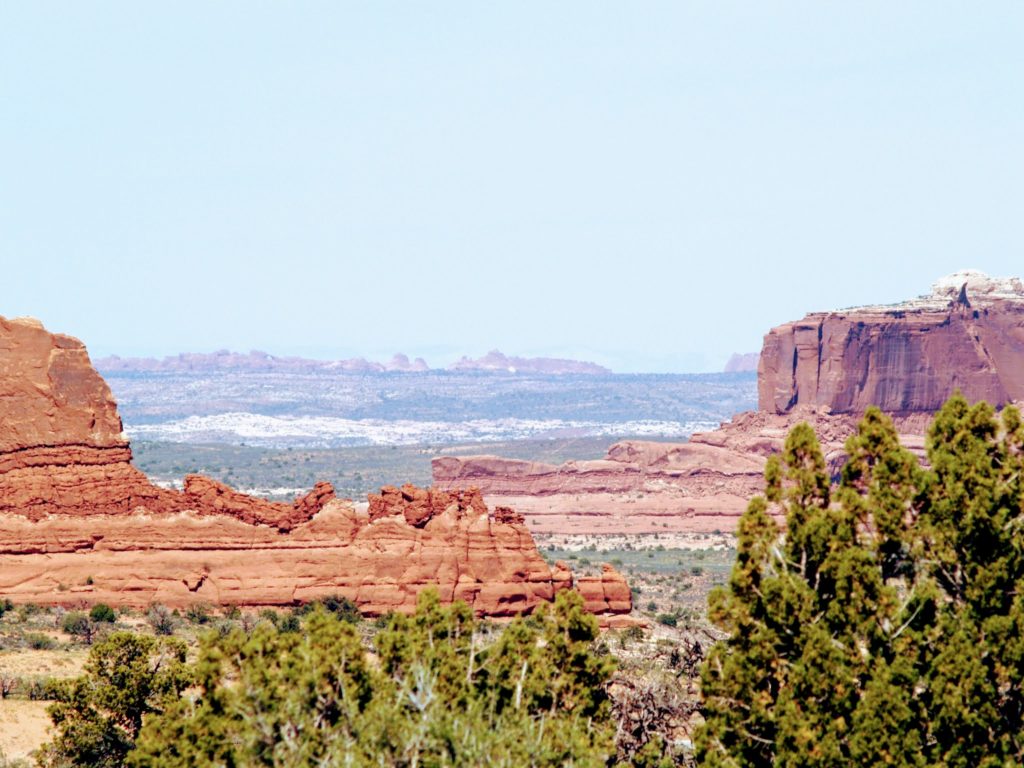
Mini-resurrection
Matthew 27: Many bodies of believers asleep in their graves were raised.
Like any normal person, I don’t enjoy reading about the crucifixion. I understand that it’s the finest display of God’s love possible and that my hope of salvation is right here in this event. Still knowing it is all real causes me to read quickly. I don’t want to linger here. Matthew states a detail that the other writers leave out. I haven’t thought much about this “resurrection” because, as I say, I’m generally hurrying on to Easter morning. However, Matthew says that as Jesus breathes his last that there’s an earthquake that opens some sealed tombs. Godly people buried there come forth, alive! Apparently, these are not the long dead, but, like Lazarus, are people laid to rest more recently. Residents of Jerusalem know them and respect them as people of God. Matthew tells us that this “mini-resurrection” can be confirmed by many who saw them. With that, the story hurries on to the burial of our Lord and then, hallelujah, to the empty tomb. We don’t know who these saints are, what they do and say, or what becomes of them. I know I’ve probably seen too much special effect filled TV but I can’t help but imagine a spiritual tsunami being triggered by Christ’s death on the cross. In my mind’s eye I see a shock wave emanating from the cross that’s so powerful that when it reaches graves of recent dead believers that they’re brought back to life. After all, the cross is all about death and life. A “spill over,” if you please, of the cross is this “back to life” event reported only by Matthew.
Take Away: Christ’s death on the cross was powerful in ways we can hardly grasp.
Devotional on Luke

When Jesus shows mercy
Luke 18: Jesus! Son of David! Mercy, have mercy on me!
On the outskirts of Jericho a poor blind man spends his day listening for the sound of footsteps that he might beg for some loose change from some passing person. On this day, though, voices raised in excitement are drawing near and he begins shouting out the question, “What’s going on?” Finally, someone responds, “Its Jesus of Nazareth, the miracle worker. He and his disciples are coming this way.” The blind man begins shouting at the top of his voice, “Jesus! Son of David! Mercy, have mercy on me!” Several tell him to be quiet and the sound of the crowd nearly drowns him out anyway. He shouts all the louder, “Have mercy on me!” Then, a calm, authoritative voice is heard. Jesus is right there in front of him. “What do you want from me?” he asks. The blind man answers, “Master, I want to see again.” “Okay, do it,” Jesus replies. Light, color, and movement flood in as sight is restored. As I read this story, I’m the blind man. Life is empty, desperate, and hopeless. Then, Jesus passes by. In my own words, I shout out “Have mercy on me!” And he does. Thank you, Lord, for your light giving mercy in my life.
Take Away: Its mercy we need and its mercy we receive from the Lord.
Devotional on Romans
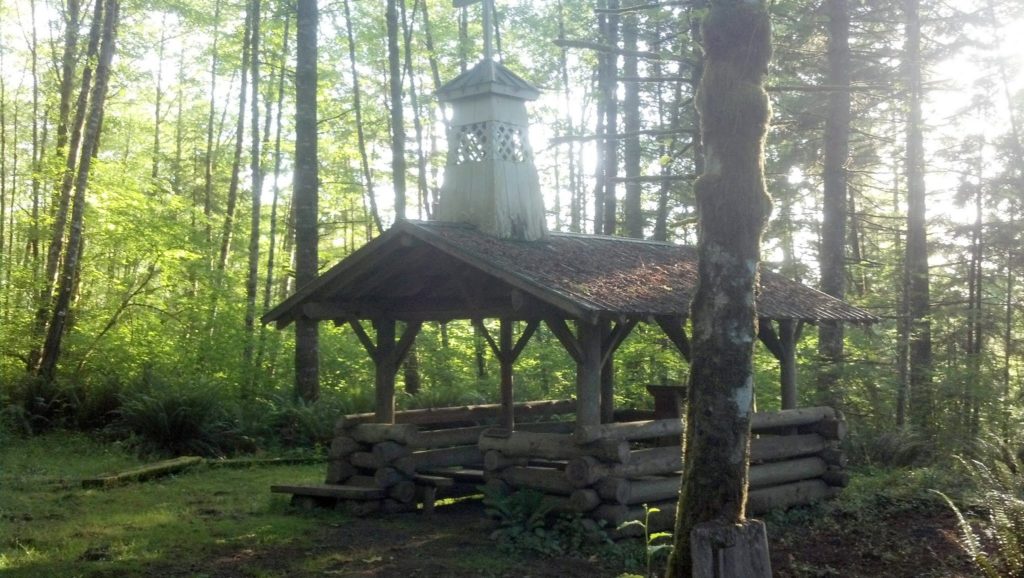
Freedom
Romans 6: You are dead to sin and alive to God.
The topic is freedom. When I was bound in sin, living a dead end life without hope Jesus came to rescue me. Taking my sin as his own, he carried it to death, stripping it of its grip on me. Then, in the resurrection, the possibility of new life came to me. When I join Christ at the cross I die to sin. When I join him at the tomb on resurrection morning, that resurrection life becomes mine. Now, I stand a free man, made new by the work of Christ. I’m filled with thanksgiving and forever indebted to the One who has made it all possible. The freedom I’ve received is a cherished possession, one that I guard carefully, realizing that some acts are out of bounds for me because to do them would place me back in bondage from whence I came. Instead, I willingly serve the One who gave me freedom, bound, not by sin and death, but by love.
Take Away: I’m bound…not by sin, but by God’s love.
Devotional on Revelation
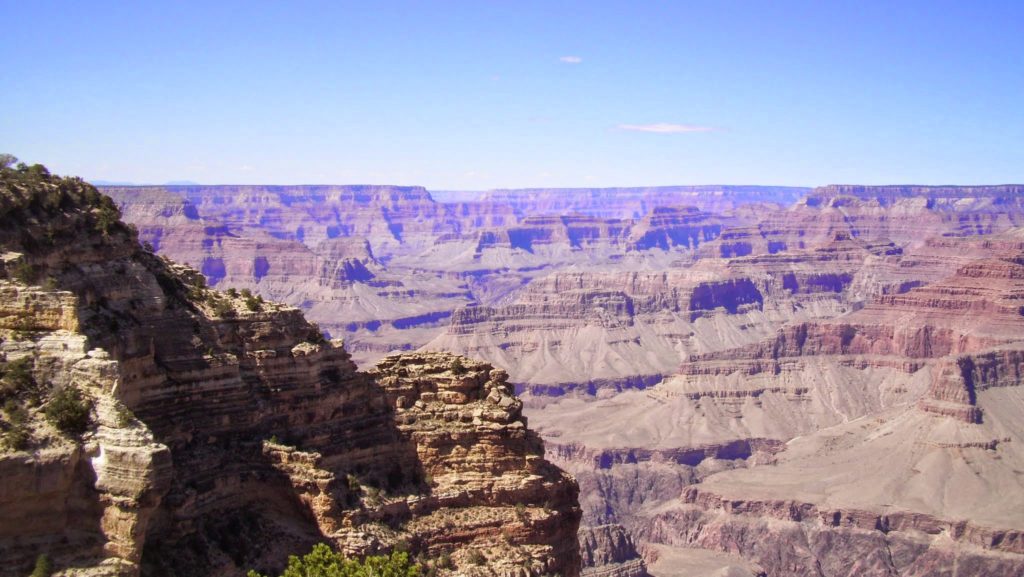
Judgment Day
Revelation 20: I saw all the dead, great and small, standing there – before the Throne!
The events described are challenging to say the least. There’s a 1000 years of peace on earth as the old dragon is bound in the pit. Is it a literal thousand years? Is the peace total or just the general condition of the earth? At the end, it seems there’s a good chance that the story of the human race is about to start all over again as the dragon is released and goes to work. But it’s not to be. Time is up. The dead are called forth and Judgment Day has finally come. Two books; one detailing the deeds of each life and the other listing those who’ve given themselves to the Lamb are the witnesses. The separating of the sheep from the goats, the wheat from the tares takes place. It’s the end. It’s the beginning. Everything that’s happened has been the prelude to eternity. As is plain to anyone reading my devotionals on Revelation I really don’t have a clue. I’m lost as to both timeline and actual events. However, even someone as clueless as I am can have a handle on this final event. I’m going to stand before God. My life is going to be an “open book.” At that point, my only hope will be that second book, the Book of Life. If I’ve given my heart to Jesus and lived for him, it’s that book that’s my hope: my hope of life. Is your name in the Book of Life?
Take Away: Ultimately, that’s the only question that really matters.
Devotional on Revelation

As the curtain falls
Revelation 22: “Come!” say the Spirit and the Bride.
The final scene is that of a river flowing with the Water of Life and a tree called “the Tree of Life.” There’s the Throne of God surrounded by his worshipers. Righteousness reigns…holiness everywhere. John is told to publish his vision, making it available to all who will read. Then, Jesus, the star of this whole story speaks, in effect, putting his signature on the entire vision. Now, we hear a word that’s both an invitation to all and a mission for the Church. There’s the invitation to “come and drink…freely of the Water of Life.” There’s also a commission for the Church, the Bride of Christ, to join the Spirit in echoing the invitation to the entire human race, offering this Water of Life to all who will come. What we receive we offer to others. Now, as the curtain is falling, Jesus speaks again, assuring us of his return. From the audience John answers for all of us: “Yes, Come, Master Jesus!”
Take Away: Jesus is coming back. This is our hope. Proclaiming this truth is our mission.
